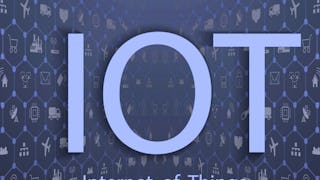Filter by
SubjectRequired
LanguageRequired
The language used throughout the course, in both instruction and assessments.
Learning ProductRequired
LevelRequired
DurationRequired
SkillsRequired
SubtitlesRequired
EducatorRequired
Explore the RTOS Course Catalog

Skills you'll gain: File Systems, Operating Systems, Data Integrity, Debugging, Systems Design, Distributed Computing, Data Storage, C (Programming Language), System Programming, Command-Line Interface, Performance Tuning, Data Security, Computer Hardware, Scalability
 Status: Free
Status: FreePohang University of Science and Technology(POSTECH)
Skills you'll gain: Internet Of Things, Cloud Platforms, IBM Cloud, Application Development, Cloud Services, Cloud Computing, Google Cloud Platform, Microsoft Azure, Amazon Web Services, Emerging Technologies, Business Technologies
 Status: Free
Status: FreeUniversity of California, Santa Cruz
Skills you'll gain: Systems Design, Mathematical Modeling, Simulations, Embedded Systems, Electronic Components, System Programming, Digital Communications, Algorithms

University of Colorado Boulder
Skills you'll gain: Internet Of Things, Wireless Networks, Infrastructure Security, General Networking, Cybersecurity, Security Controls, IBM Cloud, Cloud Platforms, Network Protocols, Network Infrastructure, Automation, Emerging Technologies, Encryption, Operating Systems, Software Systems, Software-Defined Networking, Platform As A Service (PaaS), Real Time Data

University of California San Diego
Skills you'll gain: Computer Vision, Mobile Development, Digital Communications, Visualization (Computer Graphics), Application Development, Python Programming, Internet Of Things, Embedded Software, Development Environment, Algorithms

Skills you'll gain: Debugging, Scripting Languages, Programming Principles, Development Environment, Computer Programming, Program Development, System Programming, Data Access, Command-Line Interface, Automation, Data Management, Process Driven Development

Skills you'll gain: Operating Systems, C (Programming Language), Virtual Machines, System Programming, Virtualization, Linux

Skills you'll gain: Systems Integration, Cloud-Based Integration, Data Governance, Data Management, Security Strategy, Enterprise Security, Security Testing, Security Management, Security Controls, Cloud Computing, Security Requirements Analysis, Problem Management, Security Information and Event Management (SIEM), Continuous Monitoring

Starweaver
Skills you'll gain: High Voltage, Power Electronics, Electronic Systems, Basic Electrical Systems, Electronic Components, Hardware Troubleshooting, Product Support, Technical Support and Services, Electrical Safety, Maintenance, Repair, and Facility Services, Failure Analysis, Test Tools, Transportation Operations, Environment, Emerging Technologies

Skills you'll gain: MLOps (Machine Learning Operations), Data Modeling, Google Cloud Platform, DevOps, Data Processing, Data Management, Applied Machine Learning, Data Storage
 Status: New
Status: NewMultiple educators
Skills you'll gain: Environmental Social And Corporate Governance (ESG), Corporate Sustainability, Sustainability Reporting, Supply Chain Management, Business Ethics, Supply Chain, Operations Management, Manufacturing Operations, Supplier Relationship Management, Product Development, Transportation, Supply Chain, and Logistics, Strategic Sourcing, Labor Compliance, Engineering Management, Procurement, Strategic Leadership, Logistics Management, Leadership, Corporate Strategy, Reverse Logistics

New York University
Skills you'll gain: Network Security, Firewall, IT Security Architecture, Distributed Denial-Of-Service (DDoS) Attacks, Network Architecture, Intrusion Detection and Prevention, TCP/IP, Cybersecurity, Threat Detection, Cyber Threat Intelligence, Cyber Attacks, Enterprise Security, Infrastructure Security, Network Protocols, Proxy Servers
In summary, here are 10 of our most popular rtos courses
- Intro to Operating Systems 4: Persistence: Codio
- Programming with Cloud IoT Platforms: Pohang University of Science and Technology(POSTECH)
- Cyber-Physical Systems: Modeling and Simulation: University of California, Santa Cruz
- Industrial IoT Markets and Security: University of Colorado Boulder
- Internet of Things: Multimedia Technologies: University of California San Diego
- IBM z/OS Rexx Programming: IBM
- Intro to Operating Systems 2: Memory Management: Codio
- Advanced Applications of CDO in Enterprise Security Admin: LearnQuest
- Electric Vehicle Operation and Diagnosis: Starweaver
- Machine Learning Operations (MLOps) with Vertex AI: Manage Features: Google Cloud










